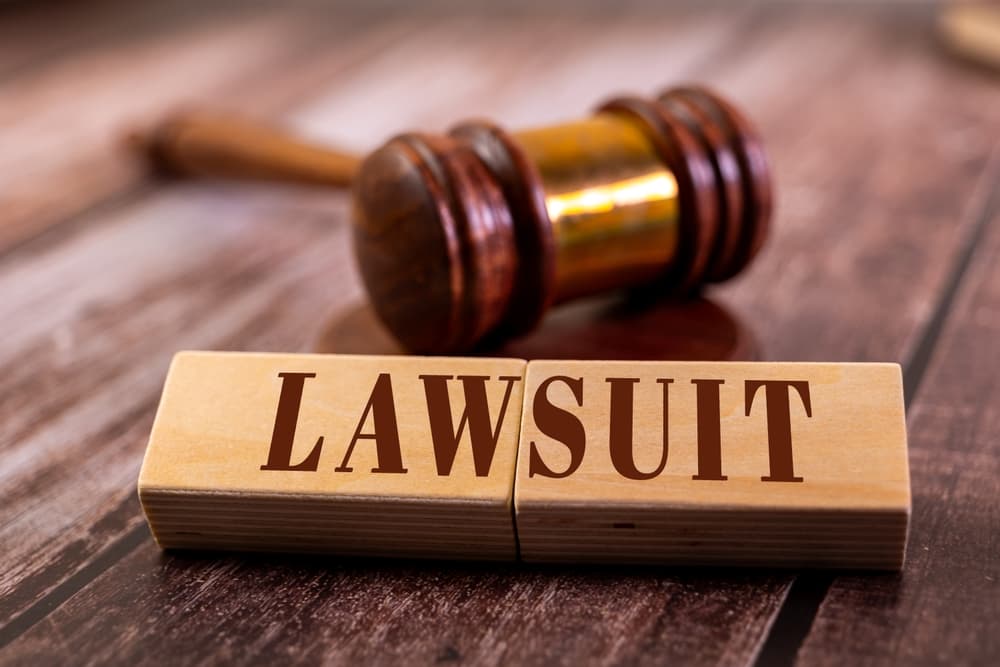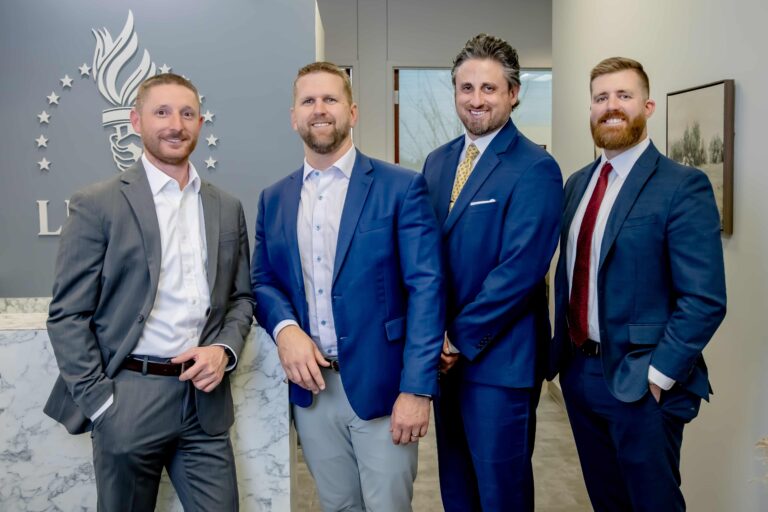
Many people believe that filing a personal injury claim means heading straight to court. In reality, the steps in a personal injury lawsuit often begin quietly—with investigation, documentation, and negotiation long before a trial becomes necessary. Each stage builds the foundation for what happens next, and careful preparation can make a life-changing difference in your recovery.
When you’re injured, the legal process can feel like unfamiliar territory. You might wonder how long it takes, what to expect, or whether you’ll need to testify in court. Having a personal injury lawyer by your side helps you stay informed, confident, and focused on healing while your attorney manages deadlines, paperwork, and strategy.
Key Takeaways for Steps in a Personal Injury Lawsuit
- A personal injury lawsuit moves through several defined stages, from investigation to resolution.
- Strong documentation, early legal guidance, and timely filing all influence how smoothly your claim develops.
- Most cases resolve through settlement rather than trial, but careful preparation keeps every option open.
- Each state has its own legal deadlines; missing them can end your right to recover.
- Working with an attorney helps keep every step, including filing, negotiation, or trial, strategic and on time.
Investigating and Preparing the Case
Every successful lawsuit starts long before paperwork reaches the courthouse. The first phase is about uncovering facts, gathering proof, and evaluating whether you have a valid legal claim. Attorneys call this the investigation and pre-filing stage.
During this phase, your lawyer may:
- Review medical records and bills to calculate losses
- Collect photographs, surveillance video, or accident reports
- Interview witnesses and preserve statements while memories are fresh
- Identify all parties who may share responsibility
- Assess insurance coverage limits and applicable policies
Laying this groundwork gives your attorney a clear view of the damages involved and the strength of your case. It also helps avoid surprises later, such as discovering additional at-fault parties or hidden insurance coverage.
By taking the time to prepare thoroughly, your lawyer sets the stage for the next step: filing the claim within the legal deadline.
Filing the Lawsuit Before the Statute of Limitations Expires

Across most of the United States, the filing window ranges from two to three years after the injury date. In Nebraska, the statute of limitations for most personal injury actions is three years under Nebraska Revised Statute § 25-207. In Iowa, it’s two years according to Iowa Code § 614.1(2).
Filing on time preserves your right to pursue compensation. Once the complaint is filed and served on the defendant, the court officially recognizes the case, and legal discovery begins. Missing the deadline usually ends the case entirely, no matter how strong your evidence may be. That’s why it’s wise to involve an attorney early, even if you’re still recovering or waiting for medical updates.
The Discovery Process: Building the Foundation of Evidence
Discovery is often the longest and most technical phase of a personal injury lawsuit. Both sides exchange information to understand the facts and prepare for trial or settlement discussions.
During discovery, each party must share evidence and answer detailed questions known as interrogatories. Attorneys also conduct depositions, which are sworn interviews recorded by a court reporter. Medical examinations may be requested by the defense to evaluate your injuries independently.
Discovery may sound procedural, but it’s a powerful opportunity to strengthen your claim. Each document and statement helps build a clearer picture of what happened and why the other party should be held accountable.
Common tools used in discovery
- Interrogatories: Written questions requiring truthful, detailed answers.
- Requests for production: Formal demands for records, photos, and other physical evidence.
- Depositions: In-person questioning under oath to evaluate testimony credibility.
Your attorney uses this evidence to prepare for settlement negotiations or trial. Even if the process feels tedious, discovery often reveals key information that shifts the case in your favor.
Settlement Negotiations: Reaching an Agreement Outside of Court
Most personal injury lawsuits never go before a jury. Instead, they’re resolved through settlements reached after discovery. Settling avoids the uncertainty of trial while still holding the at-fault party financially responsible.
Attorneys often begin negotiating once both sides understand the strength of the evidence. A settlement proposal usually includes compensation for medical expenses, lost wages, pain and suffering, and other related costs.
If negotiations stall, mediation may follow. Mediation is a structured conversation led by a neutral third party who helps both sides find common ground. Many courts require it before scheduling a trial date because it often leads to a resolution without added expense.
Settlement discussions demand both skill and timing. Accepting an early offer may mean leaving significant compensation behind, while waiting too long can delay much-needed relief. An experienced attorney balances these factors, advising you when a proposal is fair and when continued litigation may yield a better outcome.
Preparing for Trial
If settlement efforts fail, the case proceeds to trial. Trials are less common than many people imagine, but they’re an essential safeguard when disputes can’t be resolved otherwise. A well-prepared attorney enters this phase ready to present your case clearly and persuasively to a judge or jury.
Trials follow a structured path, and each stage gives your lawyer the chance to show how the defendant’s negligence caused your injuries and why compensation is warranted.
The key elements of a personal injury trial are:
- Opening statements: Each side outlines what they intend to prove.
- Witness and expert testimony: Doctors, accident reconstructionists, or financial experts explain technical details.
- Closing arguments: Attorneys summarize the evidence and request a specific outcome.
While trials can seem daunting, many clients find reassurance in knowing their story will be heard. Your attorney manages every detail, from presenting exhibits to cross-examining witnesses, so you can focus on recovery and peace of mind.
After the Verdict: Collecting or Appealing the Judgment
When a verdict is reached, the court either awards compensation or rules in favor of the defendant. If you win, the next step is collecting the judgment. The defense may pay voluntarily, or your attorney may need to take steps to enforce payment through liens or garnishment.
If the court’s decision appears legally flawed, either side may appeal. Appeals focus on legal errors, not new evidence. They can extend the timeline, but they’re sometimes necessary to correct mistakes made during the trial.
Even after a verdict, a settlement remains possible. Parties often negotiate payment terms to avoid the uncertainty of appeal.
Common Types of Injuries in Personal Injury Lawsuits
Personal injury cases cover a wide range of harm caused by negligence, from everyday accidents to life-altering events. The type and severity of your injuries often determine how your case proceeds, what compensation you might pursue, and how long recovery could take.

- Whiplash and neck injuries from car crashes or sudden impacts
- Traumatic brain injuries (TBIs) that affect memory, speech, or coordination
- Broken bones and fractures caused by falls, collisions, or workplace incidents
- Back and spinal cord injuries leading to chronic pain or mobility issues
- Soft tissue damage, such as torn ligaments or severe bruising
- Burns and scarring resulting from chemical or electrical accidents
Each injury presents its own unique challenges, including medical treatment, lost income, and emotional stress. When pursuing a claim, documenting how your injury has affected your daily life helps your attorney present a complete and compelling case for fair compensation.
Understanding Compensation in a Personal Injury Lawsuit
Winning or settling your case is only part of the process. The next step involves identifying and documenting the full extent of your damages. Compensation in a personal injury case is designed to restore, as much as possible, what was lost. While no amount of money can undo an injury, it can help you move forward with stability and dignity.
The common categories of compensation are:
- Medical expenses: Hospital bills, rehabilitation, physical therapy, and long-term care
- Lost income: Wages missed during recovery or diminished future earning capacity
- Pain and suffering: Physical discomfort, emotional distress, and the lasting impact of trauma
- Property damage: Repairs or replacement of vehicles or other personal property
- Loss of enjoyment of life: Activities or relationships affected by the injury
Each category requires supporting evidence—medical records, pay stubs, receipts, or expert opinions. The more complete your documentation, the stronger your position during settlement talks or trial. Your attorney helps organize and present these details in a way that clearly demonstrates how the injury changed your life.
Modified Comparative Negligence and Shared Fault
One of the most important concepts in a personal injury case is comparative negligence, which determines how damages are shared when more than one party is at fault.
Most states follow some version of this rule. In Nebraska, for instance, the law follows modified comparative negligence under Nebraska Revised Statutes § 25-21,185.09. You may recover damages if you were less than 50% responsible, but your compensation is reduced by your percentage of fault.
Iowa applies a similar principle through Iowa Code § 668.3, which also bars recovery if your fault equals or exceeds 50%.
This framework rewards fairness while discouraging baseless claims. Even if you think you contributed to the accident, you might still have a valid case. A skilled attorney will gather evidence to reduce your assigned fault and protect your right to recovery.
How Long a Personal Injury Lawsuit Might Take
Timelines vary depending on factors such as the severity of the injury, court schedules, and how willing the other side is to negotiate. Some cases settle in months; others take longer if disputes arise over liability or damages.
What matters most is consistent progress. Your attorney keeps the process moving by meeting court deadlines, responding to discovery requests promptly, and pushing for timely hearings. Meanwhile, you can focus on recovery knowing that someone is handling the legal details.
A realistic timeline doesn’t mean endless delay—it means thorough preparation that improves your outcome. Quick settlements can bring short-term relief, but well-documented cases often achieve stronger results.
The Role of Outside Experts in Strengthening Your Claim
Expert witnesses often make the difference between a weak and a persuasive case. They provide professional insight into issues that go beyond everyday understanding.
Examples of experts commonly used in high-stakes personal injury cases include:
- Medical professionals who explain the extent and cause of your injuries
- Accident reconstruction specialists who recreate how a crash occurred
- Economists or vocational experts who estimate long-term financial losses
Their testimony helps clarify complex issues and gives juries or insurers a reliable basis for decision-making. A strong expert lineup demonstrates that your case rests on facts—not assumptions.
Post-Trial Motions and Appeals
Even after a verdict, litigation may not end immediately. The losing party can file post-trial motions, asking the judge to reconsider or amend parts of the judgment. If major legal errors occurred during the trial, the next step may be an appeal.
Appeals are not new trials. They’re legal reviews focused on whether the court correctly applied the law. For example, if evidence was improperly admitted or jury instructions were flawed, an appellate court can reverse or modify the decision.
Your attorney guides you through this stage, explaining whether an appeal is worth pursuing or if post-trial negotiation makes more sense. In some cases, settlement discussions resume even after a verdict, helping both sides avoid the cost and uncertainty of further litigation.
How an Attorney Helps You Through Every Step

Some ways your attorney supports your case include:
- Evaluating evidence and determining the best path forward
- Communicating with insurers and negotiating to prevent unfair pressure or lowball offers
- Calculating damages accurately and documenting every expense
- Keeping you informed and involved at each stage of the process
Having a legal advocate provides peace of mind, letting you focus on healing instead of legal obstacles. Even when challenges arise, you’ll know someone is fighting for your best possible outcome.
FAQs About the Steps in a Personal Injury Lawsuit
How long do I have to file a personal injury lawsuit?
Most states allow two to three years from the date of injury, but this varies. Nebraska generally gives you three years (Neb. Rev. Stat. § 25-207), while Iowa allows two years (Iowa Code § 614.1(2)). Missing this window typically ends your right to recover, so prompt legal help is vital.
What if I was partially at fault for my injury?
You may still recover compensation depending on your percentage of fault. Under modified comparative negligence, your recovery is reduced by your share of responsibility, but only if you were less than 50% at fault in Nebraska or Iowa.
Will my case go to trial?
Most cases settle before reaching court. Trials happen when parties can’t agree on liability or damages. Even then, trial preparation often prompts renewed settlement offers that resolve the case before a verdict.
How much does a personal injury lawyer cost?
Most personal injury attorneys work on a contingency fee basis. That means you pay nothing upfront, and the attorney receives a percentage of the settlement or verdict only if you recover compensation. This arrangement allows access to quality representation without financial strain.
What types of damages can I claim?
You may pursue compensation for medical bills, lost wages, emotional distress, property damage, and reduced quality of life. Each case is unique, so your attorney will evaluate the full scope of your losses and gather evidence to support them.
Next Steps: Taking Action Toward Justice

If you’re recovering from an injury caused by someone else’s negligence, you don’t have to face the legal process alone. A skilled attorney can handle every step of your lawsuit, from gathering evidence and negotiating settlements to standing up for you in court if needed.
At Liberty Law Group, our attorneys represent clients across Nebraska and Iowa with dedication, compassion, and determination. We understand the financial and emotional strain an accident can cause, and we fight tirelessly for fair compensation that helps you move forward.
Contact us online or call our Omaha office at (402) 865-0501 or our Lincoln office at (531) 249-5534 to schedule a confidential consultation and discuss your next steps today.




